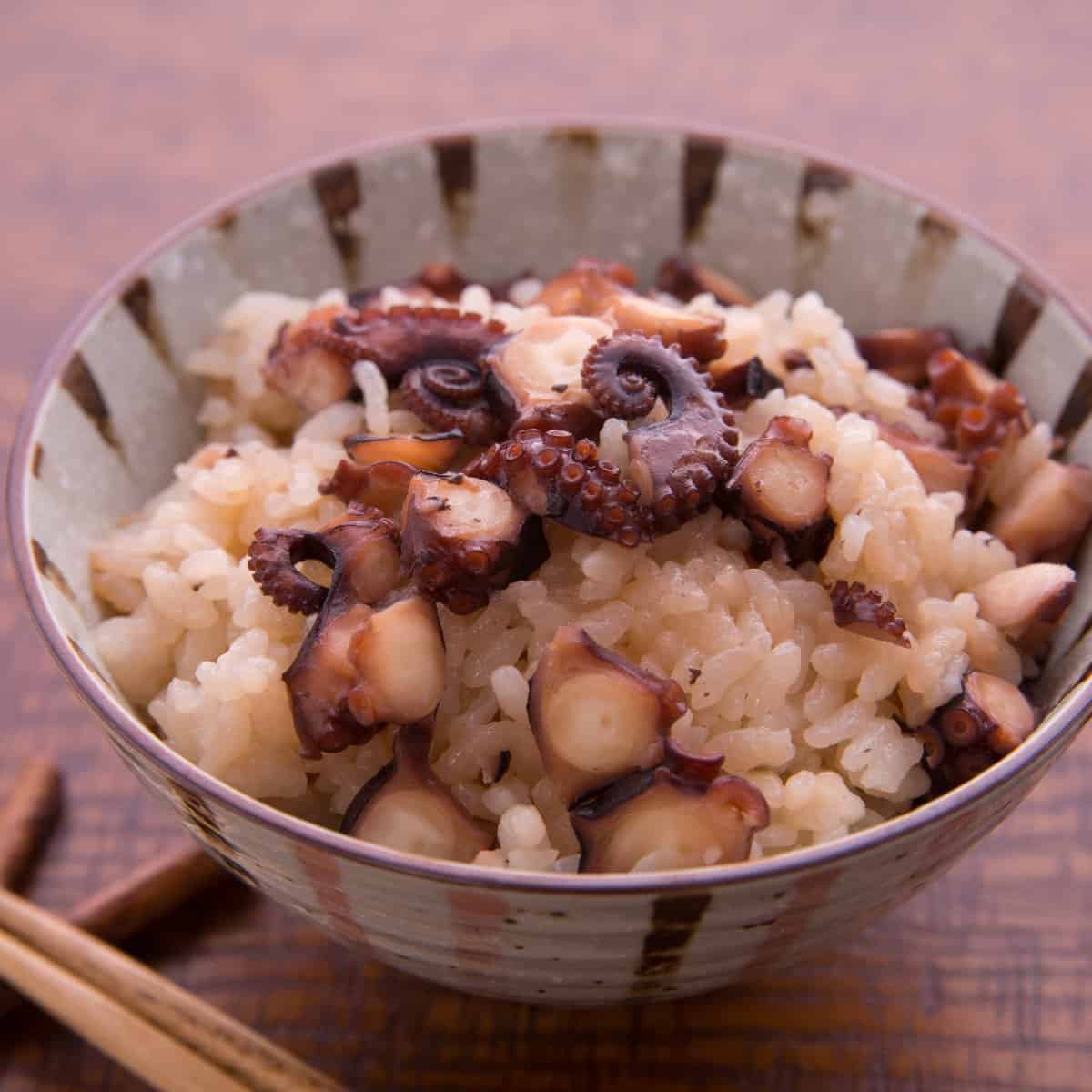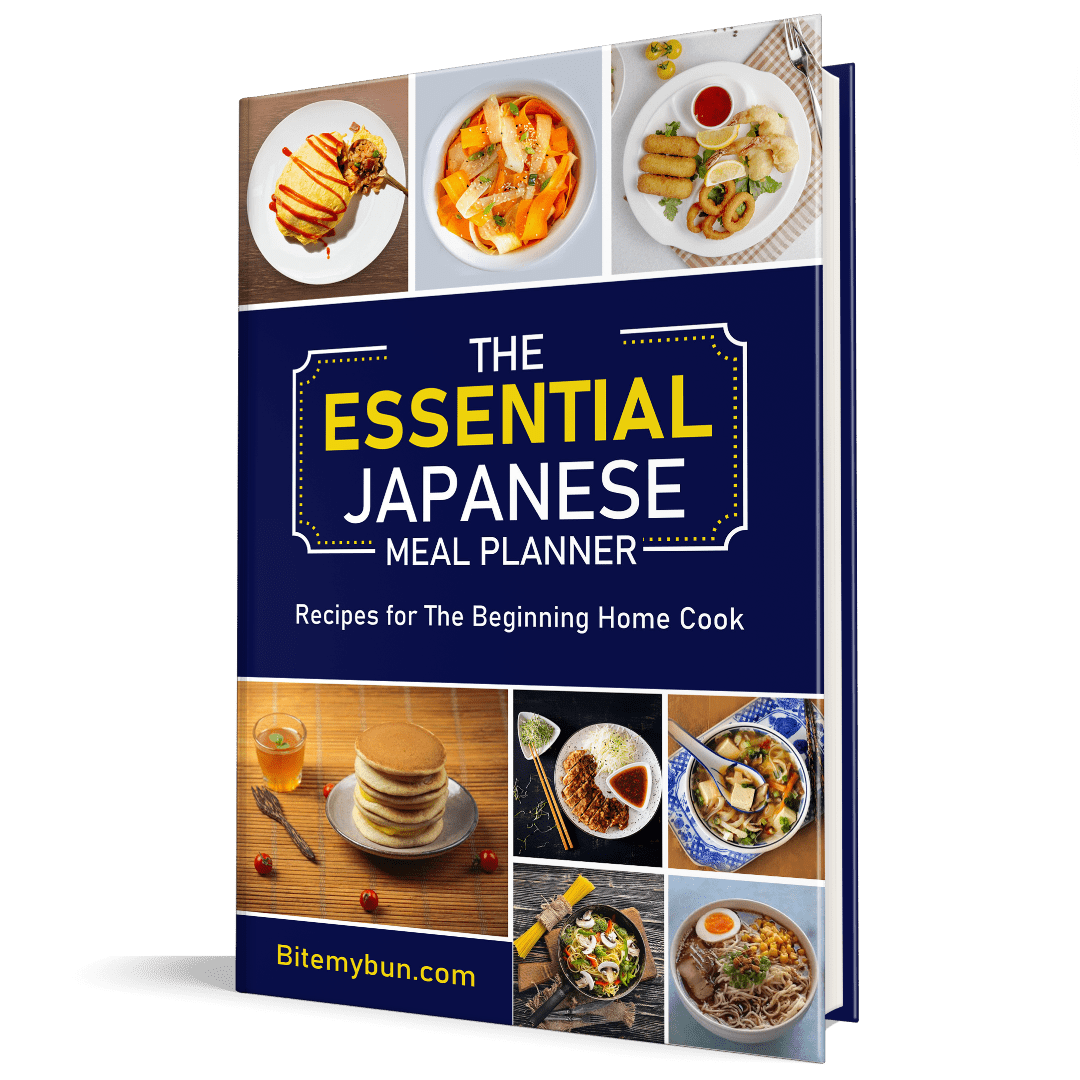Meshi: What Does It Mean In Japanese?
In Japanese, meshi means “meal.” It’s a common word used in all sorts of contexts, from someone talking about what they had for lunch to a chef describing a dish they’re preparing.
More accurately, meshi means a simple food, food that is boiled or steamed until all of the water has left from cooking, like with rice, grains, or wheat. Because almost all meals will have one of these elements, meshi is almost synonymous with meal.
Meshi is also one of the ingredients of maki sushi, the rice inner layer of the roll. When meshi is made with sushi vinegar and sugar, it’s called sumeshi or sushi meshi.


Check out our new cookbook
Bitemybun's family recipes with complete meal planner and recipe guide.
Try it out for free with Kindle Unlimited:
Read for freeIn this post we'll cover:
What does Meshi ya mean?
In Japanese, meshi ya means “eating house.” Rice shops are common in Japan and specialize in selling rice. They usually also sell other staples like flour and beans, but the true meaning of meshi ya is a restaurant that serves simple food.
What’s the difference between meshi and gohan?
Both meshi and gohan can refer to cooked rice (uncooked rice is kome), but meshi can refer to any simple dish that’s cooked, gohan can only refer to cooked rice or a dish with cooked rice.
A lot of Japanese dishes have cooked rice so they can almost seem to be used interchangeably, but are not completely.
The Many Meanings of Meshi: Exploring the Word for Rice in Japanese
Meshi (飯) is the Japanese word for rice, and it is written using the kanji characters for “meal” and “rice.” It is a basic and commonly used word in Japanese, and it can refer to both cooked and uncooked rice. Here are a few things to keep in mind when talking about meshi:
- Meshi is a specific term for rice that has been cooked and is ready to eat, whereas kome (米) refers to uncooked rice.
- Gohan (ご飯) is a more casual and colloquial way to refer to cooked rice, and it is often used in everyday situations.
- O-kome (お米) is a polite way to refer to uncooked rice, and it is commonly used when buying rice at a store or talking about the product in a formal setting.
How is Meshi Used in Japanese?
Meshi is a versatile word that can be combined with other words to create compounds that refer to specific types of rice dishes or meals. Here are a few examples:
- Curry meshi: Rice topped with Japanese-style curry
- Katsu-meshi: Rice topped with breaded and fried pork cutlet
- Tekka-meshi: Rice topped with raw tuna sashimi
How to Remember the Different Forms of Meshi
For a novice speaker of Japanese, it can be a little confusing to remember all the different forms of meshi. Here are a few tips to help you keep them straight:
- Remember that meshi specifically refers to cooked rice, whereas kome refers to uncooked rice.
- Gohan is a more casual way to refer to cooked rice, and it is often used in everyday situations.
- O-kome is a polite way to refer to uncooked rice, and it is commonly used when buying rice at a store or talking about the product in a formal setting.
- When adding other words to meshi to create compounds, remember that the first part of the word usually describes the main ingredient or flavor of the dish. For example, curry meshi is rice topped with curry sauce.
Common Uses of Meshi in Japanese Cuisine
Rice is a staple food in Japan, and meshi is an important part of many traditional dishes. Here are a few popular foods and uses for meshi in Japanese cuisine:
- Sushi: Vinegared rice topped with raw fish or other ingredients
- Donburi: A bowl of rice topped with various ingredients, such as tempura or beef
- Bento: A lunch box that usually includes a portion of rice, along with other dishes such as meat or vegetables
- Mochi: Sticky rice cakes that are commonly eaten during the New Year holiday
- Soy sauce: A common condiment for rice dishes that is made from soybeans and wheat
When to Use Meshi in Japanese Sentences
Meshi is a simple and straightforward word that can be used in a variety of situations. Here are a few examples of when you might use meshi in a sentence:
- “Watashi wa meshi ga tabetai desu.” (I want to eat rice.)
- “Kore wa oishii meshi desu.” (This is delicious rice.)
- “Meshi wo tsukutte kudasai.” (Please cook rice.)
- “Kono meshi wa takai desu.” (This rice is expensive.)
Why Meshi is Important to Know
If you’re planning to visit or live in Japan, knowing the word for rice is essential. Here are a few reasons why:
- Rice is a primary staple food in Japan, and it is found in many dishes and meals.
- Meshi is a commonly used word in Japanese, and you are likely to hear it in conversation or see it on menus.
- Understanding the different forms of meshi can help you order the correct type of rice when eating out or buying rice at a store.
- Meshi is also an important part of Japanese culture and traditions, such as mochitsuki (pounding rice to make mochi) and o-sechi ryori (traditional New Year’s dishes).
In conclusion, meshi may sound like a simple word, but it has many different forms and uses in Japanese. Whether you’re a new speaker of Japanese or a seasoned pro, understanding the nuances of meshi can help you navigate the country’s food and culture with ease.
Conclusion
So, meshi means “rice” in Japanese. It’s a very versatile word that can be used in many situations.
It’s important to know the word if you’re visiting the country, or you might end up ordering the wrong thing. So, don’t be afraid to ask “What does meshi mean in Japanese?”
You can always Google it!
Check out our new cookbook
Bitemybun's family recipes with complete meal planner and recipe guide.
Try it out for free with Kindle Unlimited:
Read for freeJoost Nusselder, the founder of Bite My Bun is a content marketer, dad and loves trying out new food with Japanese food at the heart of his passion, and together with his team he's been creating in-depth blog articles since 2016 to help loyal readers with recipes and cooking tips.

